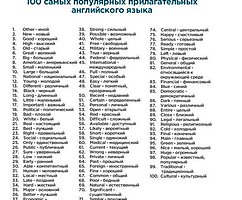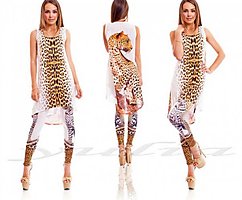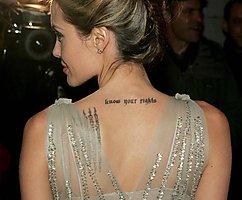Lying on the packaging or marketing ploys 10
 Bashny.Net
Bashny.Net
"Everybody lies", - says the protagonist of the popular TV series. "Advertising and marketing lie" - concretize others. Of course, in order to promote their product was selected by the consumer, manufacturers and marketers are ready to deal. They are not to lie - for malicious consumer fraud may well be severely punished. But finding clever loopholes to wishful thinking, non-existent for real. Slon collected several examples of how marketers are catching consumers and play on their ignorance and naivety. Carefully read the package!
10 facts with pictures to it via slon.ru
Scary gluten
Recently, the packaging of flour and cereal (and other) products are increasingly labeled with the words "Gluten-free", and especially vigilant consumers, leading a healthy lifestyle, so prefer to buy food. Like, better to err and not have some kind of "gluten-free": what if it harmful? However, they are not even aware that caught on the hook for marketers who decide in advance how they scare scary word is particularly conscious of the buyers. Gluten or gluten - the main protein cereal. It really can be dangerous, but only for those people who are sick hereditary autoimmune disorder celiac disease (gluten enteropathy). And it is a rare disease.
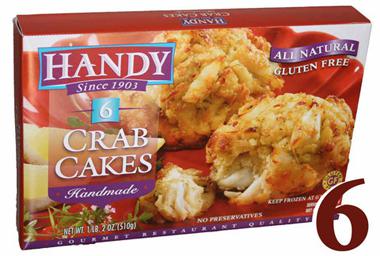
No cholesterol!
The inscription on a bottle with vegetable oil that the product does not contain cholesterol (and he was there and should not be kept in any case) - a great marketing ploy. He works for those who do not know that vegetable oil is not cholesterol. It is very similar in earnest students of the University of California, which is common in campus leaflets, warning that water can not in any case drink, because it contains a dangerous substance with no taste, color and smell - dihydrogen monoxide (scientific name of ordinary water) . It is surprising that none of the marketers did not use this term and has offered to put on a product label that he "does not contain dihydrogen monoxide hoax." The word could have passed for a dangerous
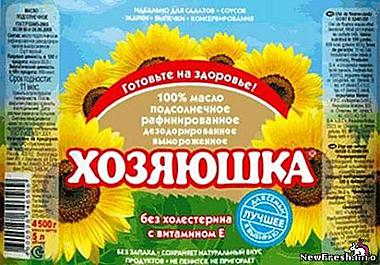
No preservatives
Noticing the fashion for a healthy diet and proper lifestyle, manufacturers encroached on the most sacred for the followers of healthy lifestyle - preservatives. And get rid of the visual content of their products. For example, not so long ago distinguished manufacturer drink Coca-Cola. He released a bottle with a new label and the words "No preservatives. Natural caramel coloring. " Well, no preservatives, but what else is in the lineup? Phosphoric acid - acidity regulator. Even if you do not speak in detail about its properties (acid is used for cleaning of rust, so it seems to focus about the coin in the stake may well be true), you can find that in the register of food additives E300-E399, it is listed under the number E388 . This means that manufacturers merely placed on the packaging the full name of the chemical element so as not to frighten the buyer terrible letter E.
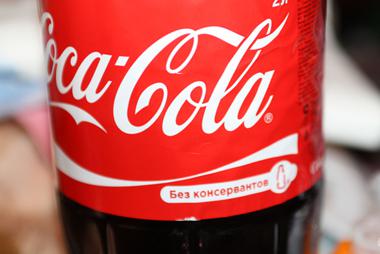
Salt and water GMO
Over the past ten years, genetically modified ingredients have become a horror story (this can really be treated differently, it is a private matter). But marketers are not discussing, useful or harmful if in fact GMO GMO, loved to slap the words "No GMO" on any comer product, regardless of whether there is in it in it or not (hardly incredulous buyer will be able to quickly check their presence, even with a strong desire). For the buyer, of course, this trick works if the notification of the content of harmful ingredients are not brought to insanity. As in the case when the phrase appears on those products in which, even with a strong desire GMI will not be - for example, on packages with salt.
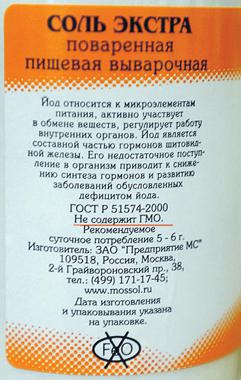
Lent
Lent - a good occasion to draw attention to the product. At this time, advertising and packaging is changing, it appears on the information that the product is lean. As a result, the buyer may be asked two of the same product, just the one with the label "fast menu", and the other without. In fact, a big difference can not be: how were vegetables vegetable dish, and it still is.
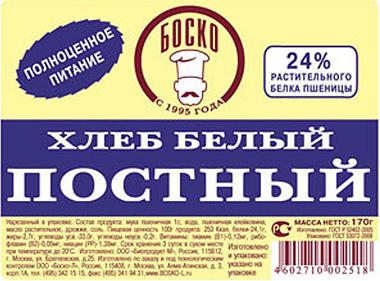
Superpoleznye bacteria
The bacteria in yogurt and dairy products, which are described in the advertisement on TV - a truly unique invention marketers. In fact, many of them are common bacteria in the microflora of humans. These include, for example, include bacteria ActiRegularis. Their real name - Bifidobacterium animalis. Enterprising comrades patented a beautiful name of one of the strains of this bacterium. All anything, but the effectiveness of that Bifidobacterium animalis survive in the acidic environment of the stomach and is not rejected, proved only Danone's research and other companies producing products with this bacterium. In April 2010, the European Agency for Food Safety (EFSA) in France, the beginning of the test the properties of yoghurt, followed by Danone in fact recognized that yogurts do not contain any special healing properties, and said to change its advertising campaign in the country.
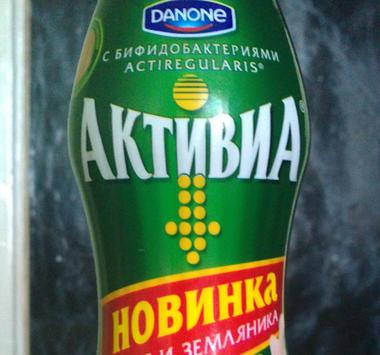
Magic shampoos
Marketers like to invent not only the beneficial bacteria in yogurt, but also to invent new superpoleznye substances in cosmetics, shampoos and creams. For example, releasing a new series of cosmetics with extracts of cashmere, which is actually a lanolin, mined for growing sheep. It really is used as a component for hair conditioner, as it cleans the hair - but the substance does not affect the growth and strength of hair as a promise of blue screens.
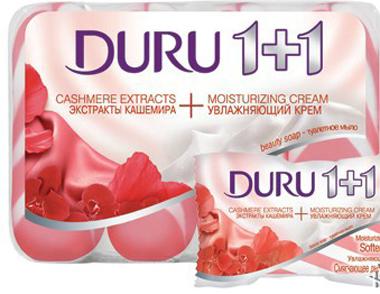
A radical way
Another marketing gimmick, with which you can convince the buyer that the goods advertised or sold - is the best and worth the purchase, - to talk about that next product of the same brand was much worse, and using it is no longer necessary. "The new formula", "new and improved composition," "Five times more efficient", "Superior molecule", "Even more taste" - and often an asterisk indicating that the advertised product is improved compared with the previous on a certain number of percent. Probably, it happens that among manufacturers across honest, and composition of the product is really improving. But alas, the consumer, got on a bait no opportunity to verify whether the intention is good.
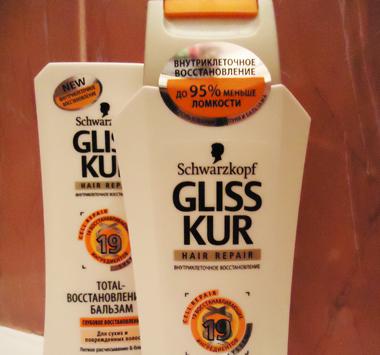
Global Russians
A clever way to play on the feelings of the consumer - to make everyone around to believe that your brand is not like the others. For example, under the disguise of foreign brands is actually producing their products somewhere in the suburbs. Ralf Ringer, Sela, OGGI, InCity, Zarina, Be free, Savage, People Wear, O'stin, Carlo Pazolini, Chester, Carnaby, TJ Collection, Paolo Conte - it is only a small part of the brand, posing as "foreigners."
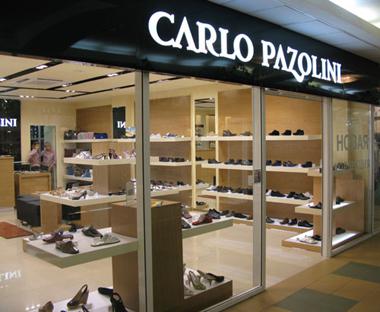
SRI advertising
In April 2010, the Federal Antimonopoly Service fined LLC "Unilever Rus" of the posters in the subway. Advertising reported that cleaner "Domestos" is a means of preventing H1N1 flu in young children. It is interesting that such a campaign endorsed Institute of Hygiene and health of children and adolescents of RAMS. How could this happen? It turns out that when different state institutions give the nod to advertising - are not uncommon. "Dental Association recommends," "assured the Institute of Nutrition" - all seen similar phrases. Laboratories profitable to cooperate with the business, because many structures such approval - the only way to survive.
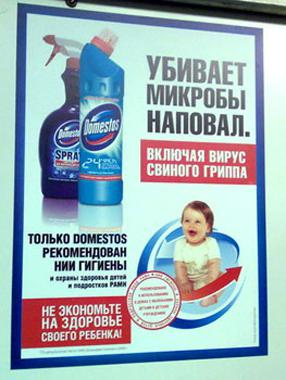
Source:
10 facts with pictures to it via slon.ru
Scary gluten
Recently, the packaging of flour and cereal (and other) products are increasingly labeled with the words "Gluten-free", and especially vigilant consumers, leading a healthy lifestyle, so prefer to buy food. Like, better to err and not have some kind of "gluten-free": what if it harmful? However, they are not even aware that caught on the hook for marketers who decide in advance how they scare scary word is particularly conscious of the buyers. Gluten or gluten - the main protein cereal. It really can be dangerous, but only for those people who are sick hereditary autoimmune disorder celiac disease (gluten enteropathy). And it is a rare disease.

No cholesterol!
The inscription on a bottle with vegetable oil that the product does not contain cholesterol (and he was there and should not be kept in any case) - a great marketing ploy. He works for those who do not know that vegetable oil is not cholesterol. It is very similar in earnest students of the University of California, which is common in campus leaflets, warning that water can not in any case drink, because it contains a dangerous substance with no taste, color and smell - dihydrogen monoxide (scientific name of ordinary water) . It is surprising that none of the marketers did not use this term and has offered to put on a product label that he "does not contain dihydrogen monoxide hoax." The word could have passed for a dangerous

No preservatives
Noticing the fashion for a healthy diet and proper lifestyle, manufacturers encroached on the most sacred for the followers of healthy lifestyle - preservatives. And get rid of the visual content of their products. For example, not so long ago distinguished manufacturer drink Coca-Cola. He released a bottle with a new label and the words "No preservatives. Natural caramel coloring. " Well, no preservatives, but what else is in the lineup? Phosphoric acid - acidity regulator. Even if you do not speak in detail about its properties (acid is used for cleaning of rust, so it seems to focus about the coin in the stake may well be true), you can find that in the register of food additives E300-E399, it is listed under the number E388 . This means that manufacturers merely placed on the packaging the full name of the chemical element so as not to frighten the buyer terrible letter E.

Salt and water GMO
Over the past ten years, genetically modified ingredients have become a horror story (this can really be treated differently, it is a private matter). But marketers are not discussing, useful or harmful if in fact GMO GMO, loved to slap the words "No GMO" on any comer product, regardless of whether there is in it in it or not (hardly incredulous buyer will be able to quickly check their presence, even with a strong desire). For the buyer, of course, this trick works if the notification of the content of harmful ingredients are not brought to insanity. As in the case when the phrase appears on those products in which, even with a strong desire GMI will not be - for example, on packages with salt.

Lent
Lent - a good occasion to draw attention to the product. At this time, advertising and packaging is changing, it appears on the information that the product is lean. As a result, the buyer may be asked two of the same product, just the one with the label "fast menu", and the other without. In fact, a big difference can not be: how were vegetables vegetable dish, and it still is.

Superpoleznye bacteria
The bacteria in yogurt and dairy products, which are described in the advertisement on TV - a truly unique invention marketers. In fact, many of them are common bacteria in the microflora of humans. These include, for example, include bacteria ActiRegularis. Their real name - Bifidobacterium animalis. Enterprising comrades patented a beautiful name of one of the strains of this bacterium. All anything, but the effectiveness of that Bifidobacterium animalis survive in the acidic environment of the stomach and is not rejected, proved only Danone's research and other companies producing products with this bacterium. In April 2010, the European Agency for Food Safety (EFSA) in France, the beginning of the test the properties of yoghurt, followed by Danone in fact recognized that yogurts do not contain any special healing properties, and said to change its advertising campaign in the country.

Magic shampoos
Marketers like to invent not only the beneficial bacteria in yogurt, but also to invent new superpoleznye substances in cosmetics, shampoos and creams. For example, releasing a new series of cosmetics with extracts of cashmere, which is actually a lanolin, mined for growing sheep. It really is used as a component for hair conditioner, as it cleans the hair - but the substance does not affect the growth and strength of hair as a promise of blue screens.

A radical way
Another marketing gimmick, with which you can convince the buyer that the goods advertised or sold - is the best and worth the purchase, - to talk about that next product of the same brand was much worse, and using it is no longer necessary. "The new formula", "new and improved composition," "Five times more efficient", "Superior molecule", "Even more taste" - and often an asterisk indicating that the advertised product is improved compared with the previous on a certain number of percent. Probably, it happens that among manufacturers across honest, and composition of the product is really improving. But alas, the consumer, got on a bait no opportunity to verify whether the intention is good.

Global Russians
A clever way to play on the feelings of the consumer - to make everyone around to believe that your brand is not like the others. For example, under the disguise of foreign brands is actually producing their products somewhere in the suburbs. Ralf Ringer, Sela, OGGI, InCity, Zarina, Be free, Savage, People Wear, O'stin, Carlo Pazolini, Chester, Carnaby, TJ Collection, Paolo Conte - it is only a small part of the brand, posing as "foreigners."

SRI advertising
In April 2010, the Federal Antimonopoly Service fined LLC "Unilever Rus" of the posters in the subway. Advertising reported that cleaner "Domestos" is a means of preventing H1N1 flu in young children. It is interesting that such a campaign endorsed Institute of Hygiene and health of children and adolescents of RAMS. How could this happen? It turns out that when different state institutions give the nod to advertising - are not uncommon. "Dental Association recommends," "assured the Institute of Nutrition" - all seen similar phrases. Laboratories profitable to cooperate with the business, because many structures such approval - the only way to survive.

Source:
Tags
See also
Advertising should die?
Good morning! For coffee lovers ...
What can be found in sausage
Baby beer! What is taught children?
Chinese wiseacres
Eight of the most hackneyed tricks
Spy photos of the new nouta Aser
Advanced piggy bank (10 photos)
About spade (suddenly someone come in handy?)
Donkey Products



